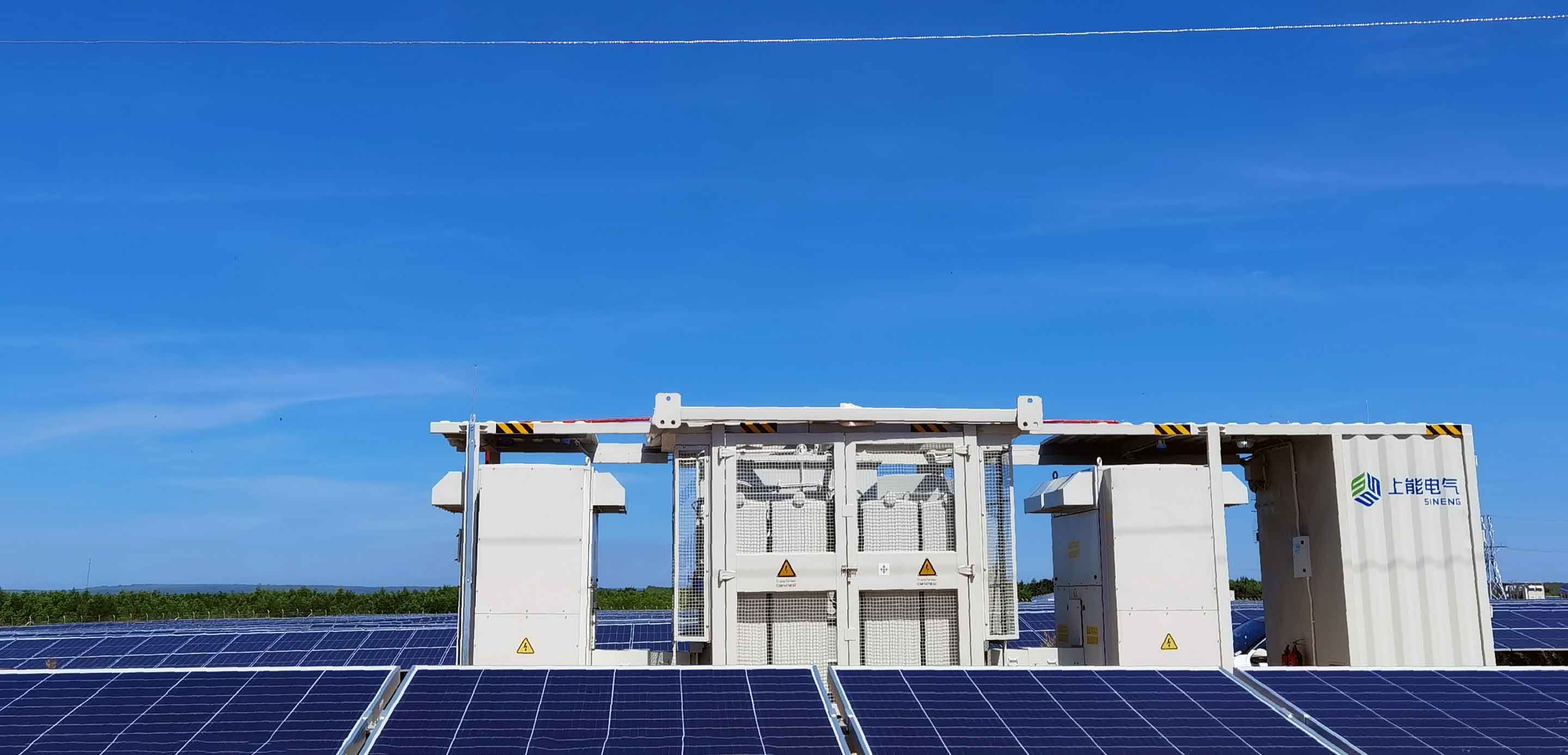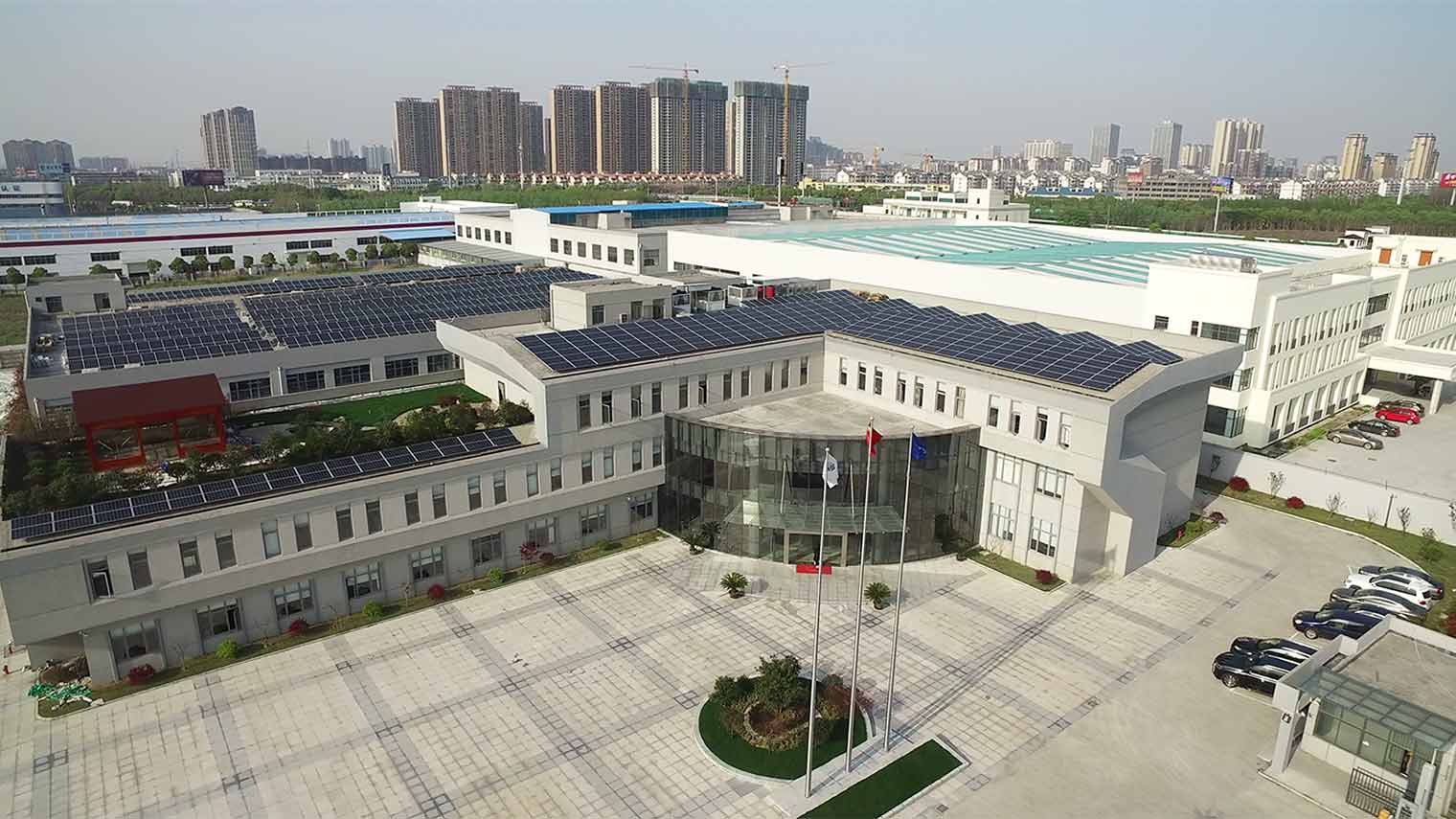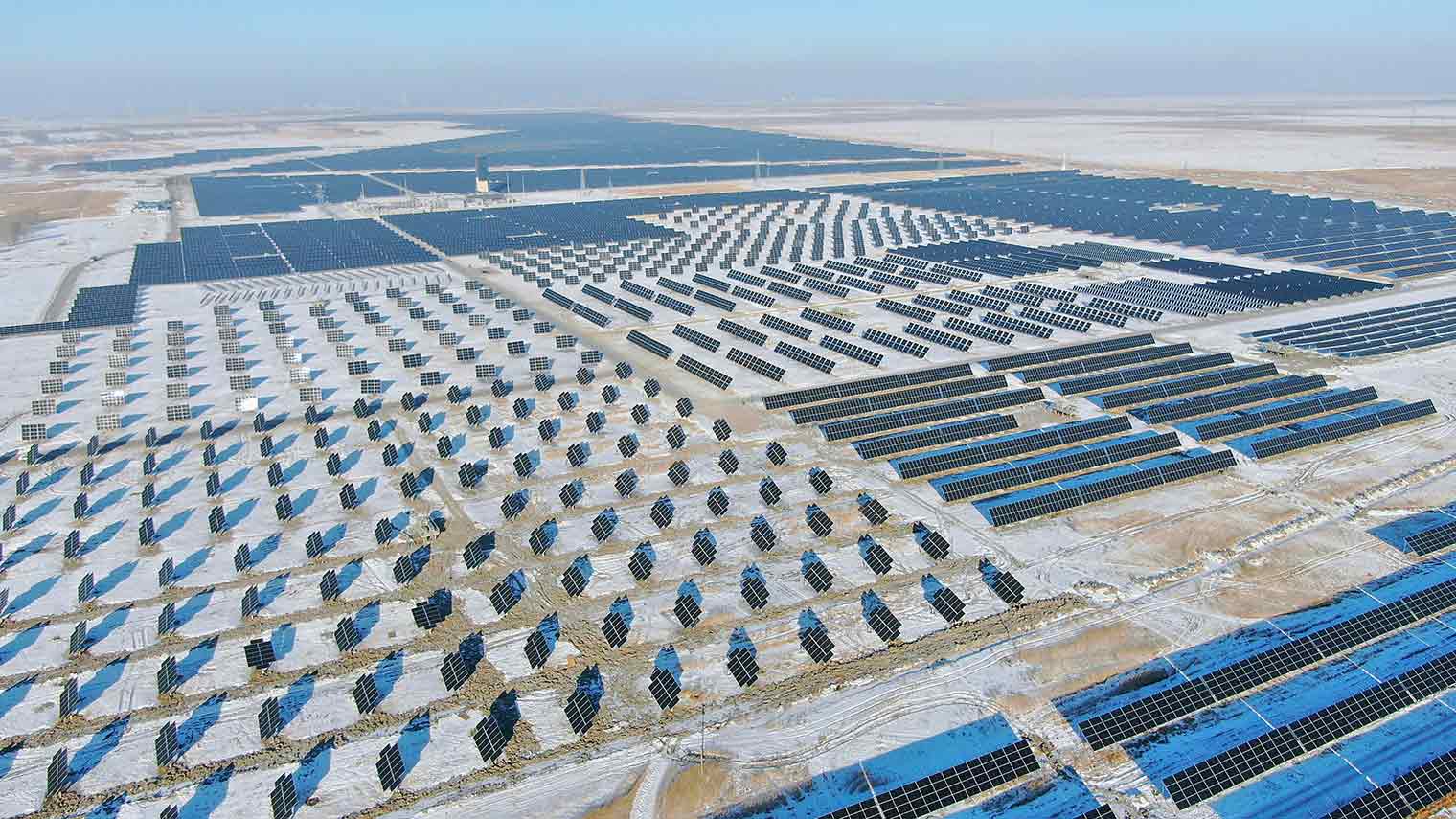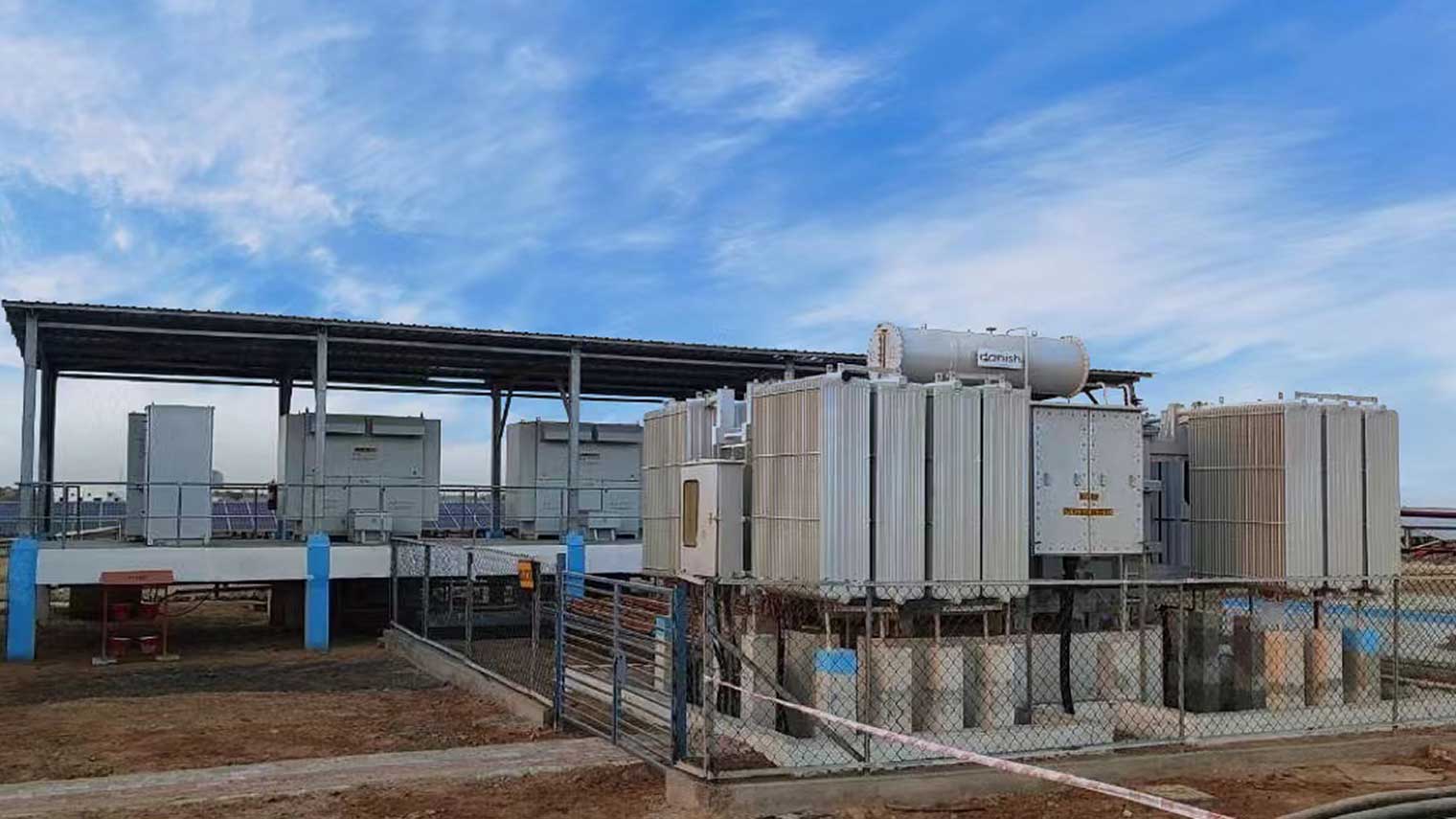- Article

- Infrastructure and Sustainable Finance
- General Sustainability
HSBC Green Link | Sineng Electric’s Global Green Expansion: A Decade in the Making
Businesses must now take proactive measures in support of China’s decarbonisation strategy for sustainable development and high-quality growth. Stay tuned for “HSBC Green Link” series on real-life “green stories” of businesses across sectors.
Over the past two decades, the Chinese PV industry has gone through a journey of ups and downs. The industry initially saw steady development, and then serious setbacks overseas, after which players turned their focus to the domestic market. After booming expansion followed by the phase-out of government subsidies, the Chinese PV industry eventually managed to carve out a position as a global leader by achieving grid parity. There have been stories of incumbents fading into the shadows, of new powerhouses taking the stage, and even of those who have been thriving and steadily growing without any hiccup.
Ten years ago, Wu Qiang and Duan Yuhe saw business opportunities in the PV power inverter industry, and decided to pair up and venture in the PV market by starting their business in Jiangsu. In spring of that year, Sineng Electric (Sineng) was formally established. Over the years, the company has been a witness to the peaks, troughs and transformations in China’s PV industry.
Since its founding, Sineng has been devoted to providing world-leading green tech solutions. The company is focused on the PV and energy storage spaces, supplying inverters to large-scale PV power plants. In recent years, distributed PV has seen rapid development. In 2021, responding actively to China’s county-level push for more distributed PV, Sineng launched a new generation of solar-for-home products and began to ramp up its distributed generation business.Sineng’s rich market experience and technical know-how have propelled the company to the top echelon of China’s PV inverter suppliers. It has long-standing partnerships with major SOEs, including State Power Investment Corporation Limited, the Huaneng Group, Datang, China Huadian Corporation, China National Nuclear Corporation, China General Nuclear Power Corporation, and GD Power Development.
Sineng has made it clear that going forward, with the rising share of PV, wind and other renewables in the energy mix, increased storage capacity is essential. For this reason, the company has developed a comprehensive portfolio of energy storage business. In a white paper released by China Energy Storage Alliance (CNESA) in 2021, Sineng ranked first among the top ten Chinese energy storage PCS providers in terms of newly installed capacity.
Since its founding, Sineng has been staunchly committed to research and development of innovative capabilities, with consistently high R&D investment, constant technology and product enhancement, and synergistic development of a network of R&D bases and production plants, all of which have enhanced its competitive edge in the PV and energy storage spaces. Through sustained high investments in R&D over the years and its high output, Sineng won recognition from the industry for its products. In 2021, the company was named a ‘Little Giant’ in the industry for its specialisation, high quality and innovative products.
While making deep forays into the Chinese domestic market, Sineng has also kept a watchful eye on overseas opportunities. Five years ago, Sineng started building a production facility in Bangalore, seeking to leverage the Indian PV market as a springboard into Southeast Asia. It was at this moment that Sineng sought out HSBC.
After learning that Sineng was making a play in overseas markets and had a need for long-term quality guarantees, HSBC began a series of talks with the company.
HSBC China was apprised of the long construction cycle for the planned Bangalore facility and Sineng’s requirement for its project contractors to provide quality guarantees for periods ranging from five to ten years. In order to deal with payments over such long periods, HSBC China’s product team quickly took action by issuing a counter guarantee and partnered with HSBC India on a long-term guarantee that met the requirements of the project.
In 2021, with the support of HSBC China, Sineng’s India plant successfully moved location and ramped up production, paving the way for the company’s continued overseas expansion for a higher market share internationally. According to a report by Bridge to India, in 2021, Sineng became India’s second largest supplier of PV inverters by on-grid installed capacity, accounting for 18.23% of the local market.
In addition to its presence in India, South Korea, Vietnam and other Southeast Asian markets, Sineng is also venturing into Europe, the Middle East, and South America, seeking to further tap into the global market. The company now has strategic partnerships with world-class conglomerates including Tata Group and SoftBank.
Currently, over one hundred nations have pledged to reach carbon neutrality by 2060. The US has committed to cutting its emissions by 26-28% compared to 2005 levels by 2025; the European Union plans to reduce its emissions compared to 1990 levels by at least 40% by 2030.
HSBC China is keenly aware of the steadily growing demand for green energy and green technology in overseas markets. Against this backdrop, Chinese green tech businesses with an international edge are well positioned to thrive in promising markets overseas. Like Sineng, many other Chinese incumbents are also making forays abroad.
However, internationalising the green business won’t be easy; financial institutions therefore have a key role to play.
With HSBC’s global banking network and green finance expertise, we are well positioned to serve Chinese green businesses venturing overseas by effectively coordinating with our colleagues in the destination markets. At the same time, we can also introduce universally applicable standards of green finance to Chinese businesses and support upgrading of the country’s green industries.
|
All of HSBC China’s green loan products, including GLP-based green loans, SLLP-based sustainability linked loans, sustainable trade finance, and socially responsible finance, are compliant with HSBC Group’s green credit standards that are informed by relevant international standards. These products are well recognised worldwide and their adoption helps boost corporate customers’ international image.
A good example in this regard is Sineng, over 90% of whose products are focused on green energy. With the support of HSBC China’s sustainable finance team, the company secured a working capital line of credit and an acceptance draft quota in January 2022, under the Green Loan Principles (GLP), the CBIRC's Green Credit Guidelines and the Sustainable Trade Instrument framework (STIP).
In addition, HSBC China also supported Sineng with its trade-related operations via guarantee quotas and STIP guarantees, bolstering the business connectivity between the company’s headquarters and its India subsidiary.
Sineng believes that financial institutions in China can play a significant role in assisting local businesses with their green transitions, diversifying their financing options, and helping them achieve leveraged growth, so that the country can peak its emissions by 2030 as pledged. “As a leader in green finance, HSBC is mobilising global financial resources to support Chinese companies, including Sineng, for green transformation. Going forward, we hope to continue strengthening our partnership with HSBC and other green financial institutions. Let’s work together to seize opportunities so that we can all contribute to the realisation of China’s decarbonisation goals.” said Sineng.
Article Source: Yicai
Author: Yuanke Zhang





